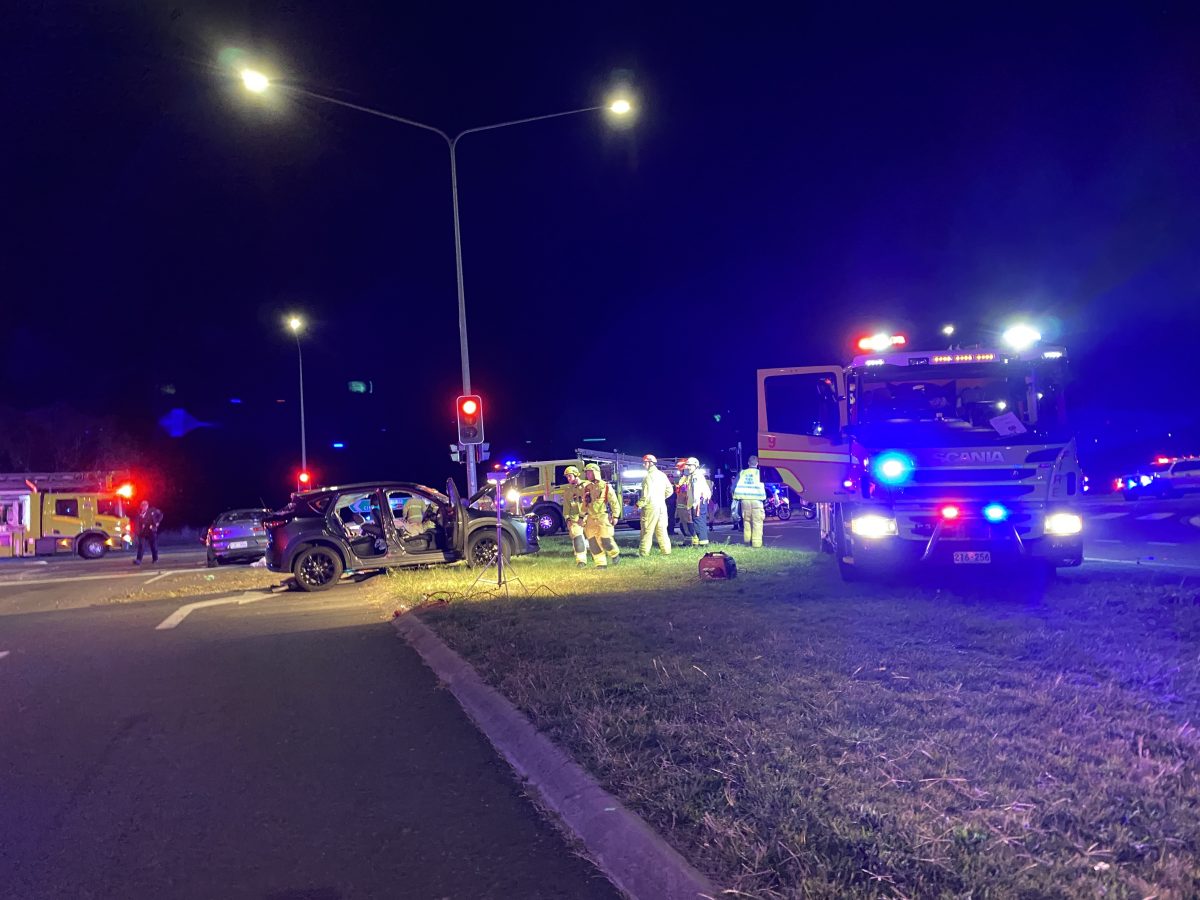
Emergency services workers are usually also the ones trying to provide immediate trauma support while looking after a scene. Photo: ACT Policing.
The ACT’s Police and Emergency Services Minister has been challenged on his responses to an inquiry looking into immediate support options for people who have suffered from or witnessed a traumatic event.
Mick Gentleman was one of several witnesses who appeared before a committee public hearing into what gaps exist in providing support in the ACT.
Mr Gentleman explained there was a “gap immediately after the first response” to emergency events such as a serious car crash that needed to be looked into.
Police officers can note people they think need support and refer them for assistance, but the first support witnesses or those involved in traumatic events receive is usually from frontline workers who are also trying to respond to the scene.
Setting up something to support people in the immediate aftermath of a traumatic event was one of the recommendations from the earlier dangerous driving inquiry, which the ACT Government had ”noted”.
Committee panel member Peter Cain questioned why this was the government’s response and why it couldn’t get on with establishing such a service.
“What you’re looking for has really been done in significant substance,” he said to Mr Gentleman.
“For the government to note a pretty significant recommendation that really was fuelled by the families of victims, there’s not much more that really needs to be heard, surely?”
The recommendation had also called for a 24-hour hotline for people to access.
Mr Gentleman said responses from other witnesses and submissions to the inquiry indicated there may need to be more support than what’s already in place.
“I’d certainly take that on board … if there is a conversation in government for further support, I’d be supportive of that.”
Emergency services representatives told the hearing that while their workers usually provided the immediate trauma support, they actually weren’t best placed to give it.
ACT Policing Deputy Chief Officer Doug Boudry said dealing with a person’s trauma and grief was a more “specialised skill set” than police resourcing could cover.
“I would not propose that you get a frontline police officer being expected to be trained up, not only in the investigation, but also in terms of being able to manage and deal with grief and trauma,” he said.
“Do we need an immediate [on-scene] response? I think yes.”
ACT Policing has victim liaison officers but that is not a 24-hour service.
Officers can also refer people to SupportLink, which has a contract with the AFP and ACT Policing to help identify services that people may need outside of law enforcement.
It manages upwards of 5000 referrals each year and is in its 26th year of providing the service.
Executive director Donna Evans said the one issue they’d had that entire time was those who fell through the gaps.
“[The people we see] aren’t necessarily all the people who need support, these are the people identified by police as needing following up,” she said.
She pointed out traumatic deaths weren’t the only time people might need support – other instances could include major health incidents not resulting in death, search for missing persons, performing lifesaving interventions including CPR, aggravated burglaries, and non-fatal road or workplace accidents.
SupportLink was the sole provider of the ACT Trauma Support Service from 2006 to 2016, providing immediate on-site help when there was a sudden and unexpected death in the ACT. It was self-funded by the organisation, which no longer was sustainable, and it received partial funding from the government for two years.
In 2015, additional government funding was set up for a Coronial Counselling Service that was intended to include a first response trauma support service alongside a counselling service, and so SupportLink’s funding was cut.
“This shift created a service gap whereby individuals would no longer receive immediate, practical, wraparound support in the immediate aftermath following a traumatic event,” its submission noted.
“[Since] 2016 there has been a notable absence in immediate support for people impacted by a traumatic incident, aside from very specific circumstances relating to immediate or imminent risk (e.g. family violence, child protection matters and mental health orders).”
Now it operates as a referral service to link people identified by police with support services.
Ms Evans said there needed to be people on the ground who could identify witnesses or bystanders who may need help and stay with them, and a phone service to check in and see how people were coping.
“It takes the pressure off [police officers] to manage a small or large number of people who have questions,” she said.
“[And then have someone] reach out to someone and say, ‘How can I help you?’ – it means the world to them.
“It’s not a difficult thing to do and it’s life-changing.”
Some changes have recently been made, including extra funding to expand the Victim Services Scheme not just to direct victims, but families impacted by road deaths.
Victims of Crime Commissioner Heidi Yates explained an amended regulation meant witnesses to “violent crimes” could also be eligible for help.
This also isn’t a 24/7 crisis service.
“There is a gap outside of business hours … [there’s no person whose] sole duty is to provide to the needs of witnesses or survivors of a traumatic event,” Ms Yates said.
















